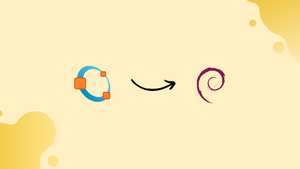Introduction
Before we start talking about how to install gnu octave in debian 11, let's briefly understand-What is GNU Octave ?
GNU Octave is a powerful numerical computing environment that is compatible with MATLAB. It provides a high-level programming language and a variety of mathematical functions and tools.
Its primary use is for numerical computations and data analysis, and both its capabilities and syntax are similar to those of MATLAB. It is appropriate for many applications, including signal processing, nonlinear and linear simulations, and image processing.
This tutorial will walk you through the process of installing GNU Octave in Debian 11.
Advantages of GNU Octave
- Open-source: GNU Octave is free and open-source software, allowing anyone to use, modify, and contribute to its development.
- High compatibility with MATLAB: GNU Octave is designed to be compatible with MATLAB, allowing users to easily migrate and run their MATLAB code in Octave.
- Numerical computing capabilities: GNU Octave provides a wide range of built-in mathematical functions and tools for numerical computing, making it suitable for various scientific and engineering applications.
- Support for complex data types: GNU Octave supports a range of complex data types, such as matrices, arrays, and structures, making it convenient for handling and analyzing complex data sets.
- Rich ecosystem and community support: GNU Octave benefits from a large and active community. There are numerous user-contributed packages, libraries, and resources available to enhance your Octave experience and receive community support.
2 Ways to Install GNU Octave in Debian 11
In Debian 11, the GNU Octave can be installed in one of two ways:
Method 1: Install GNU Octave in Debian 11 Using apt
The Debian 11 official repository contains a stable version of GNU Octave. To update the Debian repository, though, run the following command first:
sudo apt update && sudo apt upgrade
After that, use the following command to install GNU Octave on Debian:
sudo apt install octave
Method 2: Install GNU Octave in Debian 11 Using Flatpak
Alternately, you can use the flatpak to install GNU Octave on Debian. For Debian Buster and newer, Flatpak is available to install and use:
sudo apt install flatpak
sudo flatpak remote-add --if-not-exists flathub https://flathub.org/repo/flathub.flatpakrepo
After that, run the following command to install GNU Octave on Debian using flatpak:
flatpak install org.octave.Octave
Note: Enter "y" at the prompt to confirm that the GNU Octave installation is allowed.
Run GNU Octave in Debian
Run the GNU Octave application from the Application Menu once the installation is complete using either method.

On the Debian operating system, the GNU Octave is ready for usage.

Remove GNU Octave in Debian
If you installed GNU Octave via the apt installation method, you can uninstall it from your machine if it is no longer required by using the following command.
sudo apt remove --autoremove octave
To remove GNU Octave from Debian if you installed it using the flatpak approach, you must use the following command.
flatpak uninstall org.octave.Octave
FAQs to Install GNU Octave on Debian 11
Can I install additional packages for GNU Octave?
Yes, you can install additional packages for GNU Octave. Debian provides many Octave-specific packages that you can install using the package manager.
How do I start GNU Octave after installation?
GNU Octave can be started by typing octave in the terminal. This will launch the Octave command-line interface. Alternatively, you can also use a graphical interface like the Octave GUI by running octave --gui.
Does GNU Octave have a built-in editor?
Yes, GNU Octave has a built-in text editor called the Octave Editor (edit). You can use it to create or edit Octave scripts and functions.
Can I use MATLAB code in GNU Octave?
GNU Octave is designed to be compatible with MATLAB. Although most MATLAB code should work in Octave, some syntax or function differences may require minor modifications.
Are there any resources available to learn GNU Octave?
Yes, GNU Octave has comprehensive documentation available on the official Octave website. Additionally, you can find tutorials, examples, and community support through various online forums and communities.
Does GNU Octave support parallel computing or multithreading?
GNU Octave supports parallel computing using the parallel package. It allows you to distribute computations across multiple cores or machines, speeding up certain operations.
Can I create standalone executables with GNU Octave?
Yes, you can create standalone executables from Octave scripts using tools like the "MATLAB Compiler" or the "GNU Octave Compiler" (mkoctfile). These tools allow you to compile Octave code into executable binaries.
Conclusion
On Debian, GNU Octave can be installed using the apt package manager or the Flatpak package management system. It is a free and open-source programme for numerical computation. The steps for installing Octave using apt include updating the package lists, whereas the steps for installing Octave using flatpak entail first installing the flatpak package manager, followed by the GNU Octave flatpak package.
If you have any queries or doubts, please leave them in the comment below. We'll be happy to address them.
